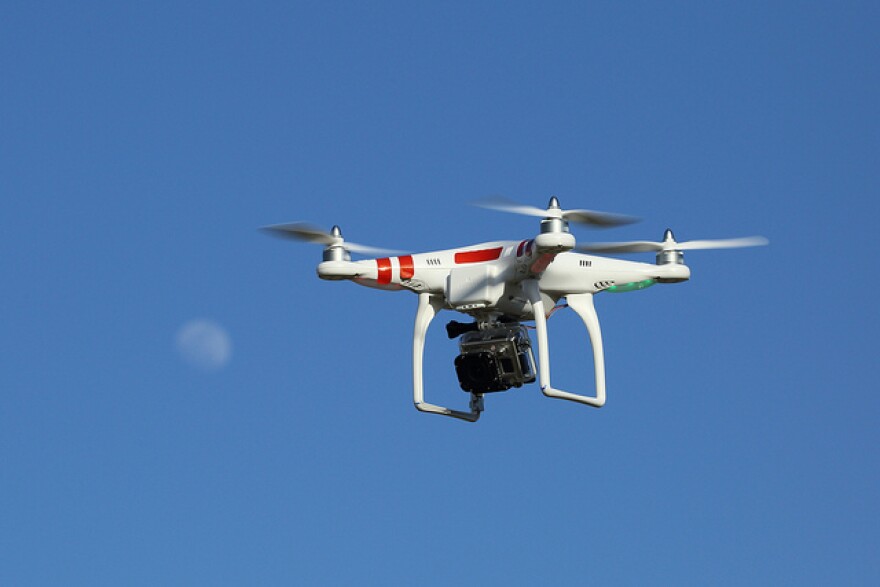AUGUSTA, Maine — A new state law takes effect tomorrow that places limits on the use of drones by law enforcement. It's one of hundreds of new laws that will start being enforced 90 days after the end of the legislative session.
Like several other new laws now taking effect, the legislation requiring law enforcement agencies to get court permission to use a drone became law because Gov. Paul LePage failed to veto them within the time set by the state constitution.
A similar law failed to overcome LePage's veto pen last year. Law enforcement agencies have also opposed the measure, but say it won't be hard to enforce, since drones aren't being used in investigations anyway.
"We have seen over the course of time changes in the law that will affect how we use other investigative tools around surveillance," says Sagadahoc County Sheriff Joel Merry, president of the Maine Sheriffs Association. "This is nothing more than that and I think it is something we can work with."
Maj. Chris Grotton of the Maine State Police testified against the legislation, arguing that policies are in place to cover the use of drones. He says he's not aware of any unmanned aerial vehicles being used in police investigations anywhere in the state.
"We have no immediate plans to do this, you know at some point we may look into this and explore it and look at the potential use," he says. "I can tell you right now we have no immediate plans to do this, but certainly we see the potential for this."
But Grotton says he can see circumstances in which a drone might be useful, such as in a hostage situation, or armed standoff. But he says there are costs to acquiring drones and training troopers on how to use them.
Oamshri Amarasingham, advocacy director of the ACLU of Maine, says the group pushed for the legislation because a law is better than a policy.
"Without this statue or any statue, it's really hard for us to know what's actually going on," she says. "And if law enforcement has not started using drones yet, I think it's smart to have policies and limits in place before they start."
Law enforcement agencies are also concerned about another new piece of legislation, the so-called constitutional carry law that allows Maine residents 21 and over to carry concealed weapons without a permit.
"I think the passage of this law was misguided," says Portland Police Chief Mike Sauschuck. "I think the very concept is ludicrous in my mind. I think that in this country, we continue to go the wrong way around firearms legislation."
He says the new law puts both citizens and the police in danger.
There are a lot of other changes taking effect Thursday that generated controversy during the session. One new law puts the overdose-revival medication naloxone in the hands of more health care professionals and friends and family members of addicts.
Another new law provides uninsured and underinsured low-income women access to preventative health services such as cancer screenings, annual exams, Pap tests and birth control.
And as of Thursday, Maine will ban the use of powdered alcohol, and prohibit the use of e-cigarettes in the same public places in which real cigarettes are banned, including restaurants, playgrounds and beaches.



